The Slikken van de Heen nature reserve in the Netherlands is showcasing the benefits of natural grazing. Joining the European Rewilding Network will enhance the reserve’s rewilding efforts and boost the network’s collective expertise.
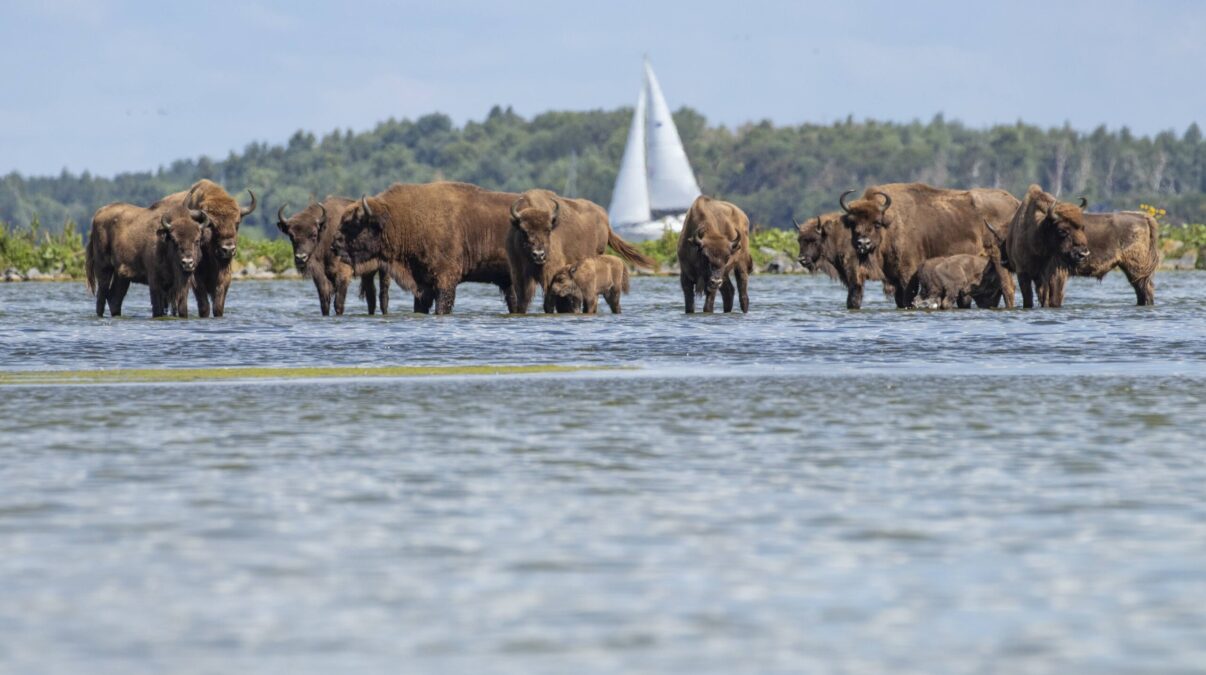
The benefits of natural grazing
In Europe, natural grazing typically involves free-roaming or semi-wild herbivores such as horses, Tauros, European bison and deer, often in combination with one another. These animals enhance wild nature through the creation and maintenance of mosaic (partly open, partly wooded) landscapes.
Located in the Dutch province of Zeeland, the 600-hectare Slikken van de Heen nature reserve exemplifies how natural grazing can help to create beautiful and biodiverse mosaic landscapes. Located on the North Sea coast, the reserve is currently home to 60 Konik horses, 14 European bison and 20 other semi-wild bovines, enabling those managing the site to study natural grazing in more detail.
Boosting rewilding outcomes
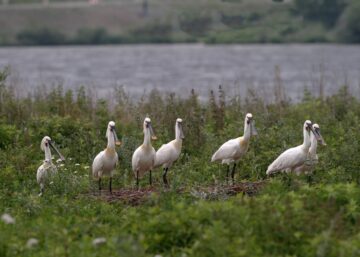
Slikken van de Heen has just become the European Rewilding Network’s (ERN) latest member, with membership now totalling 63 across 27 countries. With many other members involved in natural grazing initiatives, this addition will strengthen the network’s collective expertise and experience and boost rewilding outcomes.
“Natural grazing with European bison in relatively small reserves such as Slikken van de Heen can really help us to learn a lot about the impact of this species on a range of habitats,” says Pepijn Calle, an ecologist at Dutch NGO Stichting Het Zeeuwse Landschap, which runs the reserve, in collaboration with the Dutch NGOs ARK Nature (advice and research) and Free Nature (herd management).
“We are very happy to be joining the network,” continues Calle. “We have already gained a lot of natural grazing experience from our work, especially with regard to European bison, and look forward to sharing that and learning from others.”
Implications for bison rewilding
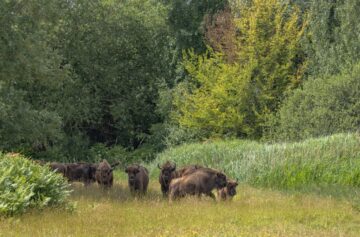
Slikken van de Heen is part of Krammer-Volkerak, a Natura 2000 site which was connected with the North Sea until 1987. Today it is a large freshwater lake supporting huge numbers of water birds, while the area is also home to animals such as a breeding pair of white-tailed eagles, a spoonbill colony and pine martens. Grazing former coastal salt marsh without any additional food or water, the reserve’s European bison and other large herbivores help to preserve the semi-open landscape and prevent the botanically rich grassland from being taken over by trees, non-native invasive species and bracken.
One unique aspect of natural grazing at Slikken van de Heen is that the European bison are thriving in relatively wet conditions (swampy vegetation and willow forests on top of rich clay). While the European bison is primarily known as a forest dweller, reserves such as Slikken van de Heen and Kraansvlak (also in the Netherlands) are demonstrating that they can live in more open, wetter landscapes without any support. This means the number of areas where bison could be reintroduced in Europe is potentially far greater.
Scaling up
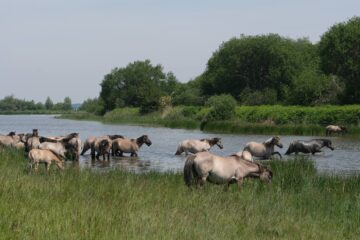
Part of the bison population at Slikken van de Heen is part of the European Wildlife Bank, a pioneering tool which Rewilding Europe uses to return numbers of native herbivores to a more natural level in European rewilding areas. The aim is to increase Slikken van de Heen’s population of grazers to 150 (50 from each herbivore species) in less than 10 years, as well as to expand the present grazing area by 60 hectares. Herds will still be kept at low densities, with animals moved to other sites if necessary.
“The reserve’s horses and European bison could become a very good source herd for rewilding initiatives elsewhere in Europe because they are well-adapated to living in the wild,” says Pepijn Calle. “Being part of the ERN will increase our opportunities for networking and identifying other areas in Europe where these animals could be relocated.”
Rewilding Europe and natural grazing
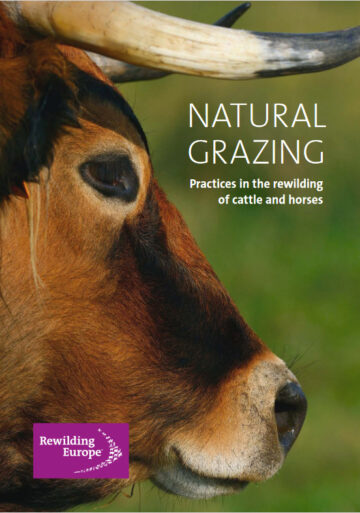
Rewilding Europe, which has published a booklet on natural grazing and rewilding, currently supports natural grazing in 24 different pilot areas across nine European countries. The Lika Plains (part of the Velebit Mountains rewilding area in Croatia), Status Wild Area (part of the Rhodope Mountains rewilding area in Bulgaria), and Ermakov Island (part of the Danube Delta rewilding area in Ukraine) are some of the largest examples.
Rewilding Europe is also heading up the three-year European Commission-funded GrazeLIFE initiative, which kicked off at the beginning of 2019. By mapping the effectiveness and costs of grazing in eight different European regions (encompassing 11 European countries), the initiative will enable the most effective grazing models to be better supported by EU policy and legislation going forwards.
A platform for exchange
Today rewilding is gaining momentum as a progressive and effective approach to conservation in Europe. Underpinning this trend, the burgeoning ERN continues to foster collaboration and amplify results.
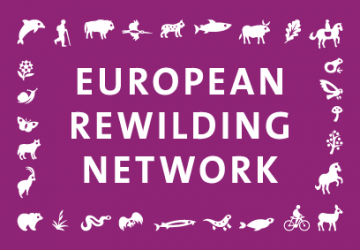 Founded by Rewilding Europe in 2013, the aim of the ERN is to enhance the efforts of each member by facilitating the exchange of skills, insight and experience. Members meet regularly, usually via webinar, while nature-based businesses can also apply to Rewilding Europe Capital, Rewilding Europe’s enterprise loan facility.
Founded by Rewilding Europe in 2013, the aim of the ERN is to enhance the efforts of each member by facilitating the exchange of skills, insight and experience. Members meet regularly, usually via webinar, while nature-based businesses can also apply to Rewilding Europe Capital, Rewilding Europe’s enterprise loan facility.
Rewilding Europe extends a warm welcome to all European rewilding initiatives that focus on practical, result-oriented rewilding and encourages them to apply for ERN membership.
